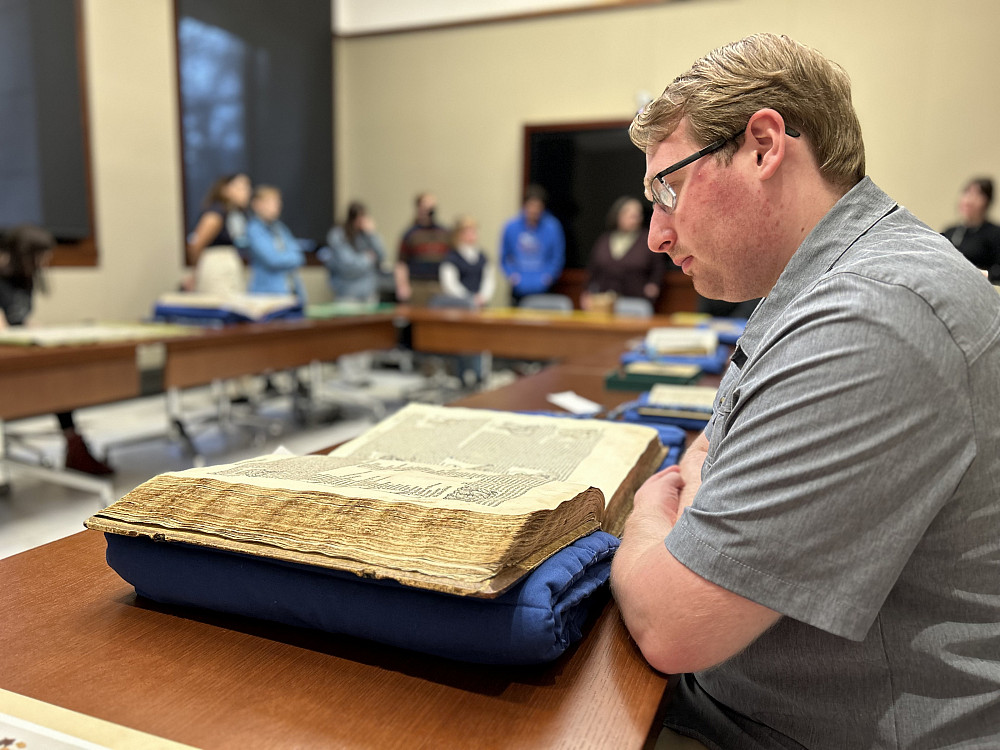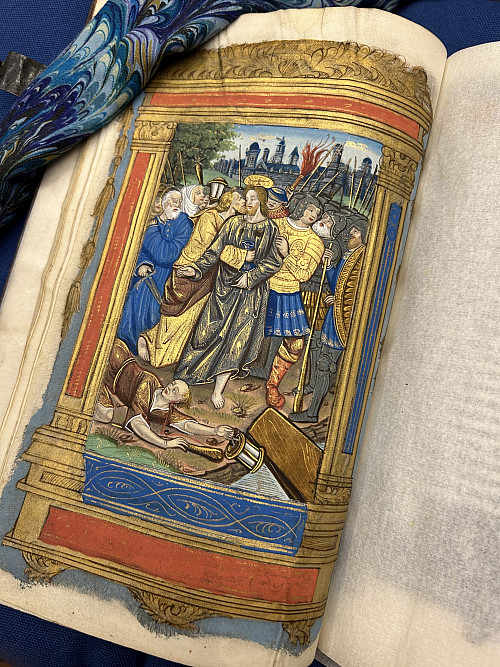Exploring museum careers and rare books
In late November, Beloit faculty and students took advantage of the college’s partnership with the Art Institute of Chicago to participate in a panel about careers in the museum industry, followed by an exploration of the Newberry Library’s rare book collection.

Credit: Grayson Jensen’25
The Art Institute’s exhibitions project manager Kylie Escudero discussed her academic and career path and then outlined the numerous tasks involved in putting together an exhibition, including curating, marketing and communications, finance, conservation, security, painting, and carpentry.
After lunch at the Institute’s Marketplace, Wright Museum curator Christa Story and Associate Professor of Spanish Gabriela Cerghedean accompanied students on a Latinx art tour. Meanwhile, Associate Professor of History Ellen Joyce organized a presentation on rare books with Nora Epstein, the outreach librarian at the Newberry Library. Students in Joyce’s History of the Book course had the opportunity to page through 600-year old manuscripts and apply the concepts discussed in the classroom. One of them, Jared Saathoff’24, tells us about the experience.
Q: What were your major takeaways from the panel at the Art Institute?
What I got from the speaker at the Art Institute was less about the specifics of museum workings and more about her career path and experiences. Because I am about to graduate, I am quite hesitant on what my next step will be. It is good to know that careers are not set in stone and that a person [like Kylie] can spend years working in retail and still find their way back to more “academic” careers if they so desire to. There’s less pressure on me to find the perfect job from the start.
Q: What is Ellen’s History of the Book class about?
Ellen’s class is about the history of the printed book, starting from the beginnings of printing technology to the innovations of Gutenberg and beyond. We have learned how an early printing press works, how individuals gathered the raw materials, and the various trends in printing over time. Another interesting thing is the process of getting a book printed during the early days of printing. It was a multi-stage [process] that required the time, energy, and money of multiple professionals.

Credit: Grayson Jensen’25
Q: How did Ellen’s class inform your experience at the Newberry Library?
In many ways. I was not lost when the presenter spoke about printing specific terms such as illuminations, woodcuts, etc. I also got to see many of the books discussed in class, such as the many “Books of Hours.”
Q: Is the Chicago trip something you would participate in again or encourage others to take advantage of?
I think all students should take advantage of trips like these. I have been on three and each one was fun and interesting.


